This year's blueberry global market situation is entirely different from other years. "And not only in Peru," stresses abbGrowers' Fred Douven. "Productions are down in many countries, and other years' budgets weren't met. Many seasons started later and had lower yields, sometimes accompanied by quality issues. The European season was the same. Of course, there are always exceptions, but overall, the kilo yields were much lower."

"Peru's situation is most peculiar. In June, we already knew Peru would enter the market later, but mainly due to El Niño, things have been somewhat dramatic there. There are significant regional differences, though. Everything south of Lima has a fairly normal production window, but the further north you go, the bigger the problems and production lag. In particular, the so-called low-chill varieties gave little or no production, and since more than 50% are the Ventura and Biloxi varieties, this segment was hit extremely hard. The zero-chill varieties are coping better with the warm periods and are faring slightly better. Having said that, the harvest's second half also looks worrisome," says Fred.
Limited options
"That creates a situation Peruvians haven't seen for a long time. The country was in a positive flow for many years and expanded strongly yearly. Yet, though the country grew in kilograms in recent years, sales no longer grew as fast. Partly due to the large supply, prices were increasingly under pressure. Add high transport costs to that, and the profit margin/turnover is affected. This year's initial forecast was for a 15-20% growth, but total production could well be 65% below 2022 levels. Peruvian companies now all face a dilemma. Do they pick longer? If so, they risk a low 2024 production volume. These are difficult, individual choices. It's not all bad, but I expect this year, many Peruvian growers will realize they don't have unlimited options."
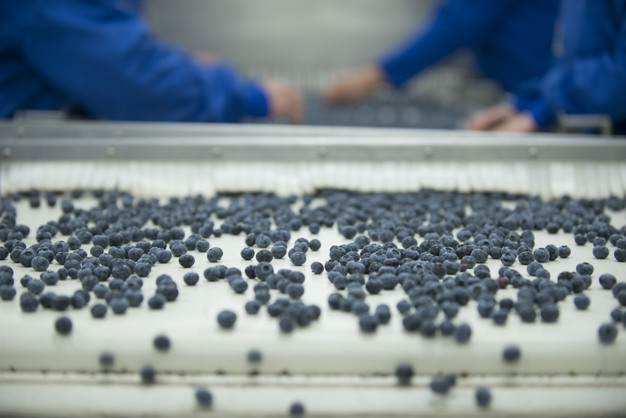
At the time of writing - late September - there were no widely available alternatives. "In Zimbabwe, the hot weather meant growers started harvesting early, in late May, early June. Those volumes are declining rapidly. They face the same situation as many European growers: alarm at how quickly bushes become bare and harvest forecasts not being met. By mid-October, many growers who don't have late varieties available will have already finished harvesting. Those with the late varieties will keep picking throughout October. Also, Zimbabwe has logistical problems at Harare airport and Cape Town Harbor [in South Africa]," explains Fred.
"In the northern parts of South Africa, the crop in the Limpopo region was slightly early, and those growers are having an average year. Travel south toward the Western Cape, where the country's largest growing areas are - in Stellenbosch and Paarl - and the blueberry crop is nice. People are, however, waiting for good weather. The season should've started several weeks ago, but at 17-20°C, average temperatures are too low. Storms have caused additional inconvenience, with workers' farm hostels being completely washed away. People are generally anxiously waiting for better weather, but, despite the delayed start, the Western Cape should have a successful season."
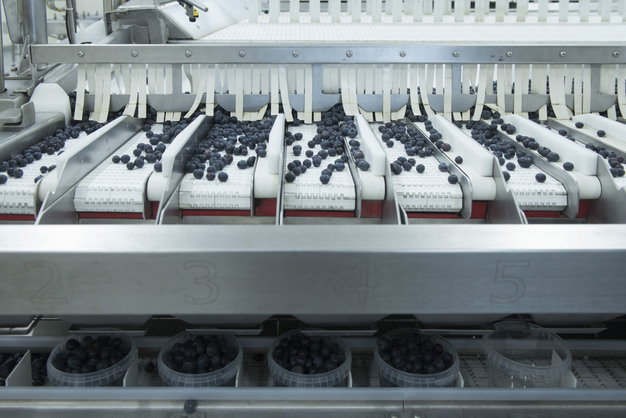
"Looking further to the global market, the first berries are being picked in northern Chile, but almost all are flown to Asia. Those volumes technically aren't yet worth loading into containers. It will be an interesting season for Chile. The prospects are good, but it's a huge country. If they're picking in the north, fruit setting in the south has yet to be well and truly established. I hope to visit Chilean growers in early November to see the situation for myself and how we can best arrange the programs. I hope to visit the Blueberry Symposium in Morocco then. I'm very curious to see how that country survived this sweltering summer," Fred admits.
"There certainly aren't any global production peaks expected in the year's last quarter. There will undoubtedly be more products on the market, but not in the quantities we saw in other years. There is a product in Peru, but Zimbabwe and northern South Africa are already heading toward the end of the season, and the rest of the country can't make up the lower volumes. We're anxious to see how things will develop this overseas season and then in Morocco."
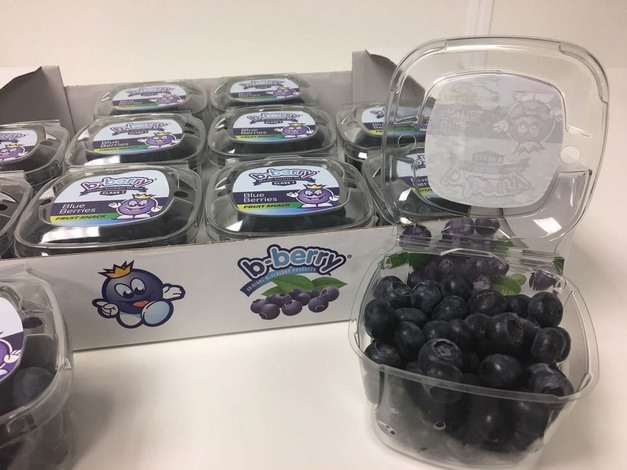
Retail sales despite high prices
Retailers have much understanding of the current market situation and price hikes, says the berry specialist. "Still, there comes a moment of fatigue at these high prices. Several retailers' berry shelf space has, thus, shrunk. That's something we're no longer accustomed to because the entire blueberry industry has done nothing but grow in recent years. However, the situation does vary quite a bit by retailer. For example, the supply at the discounters has shrunk more than at the regular supermarkets," says Douven.
"But again, the situation is very different per country. For instance, blueberries tend to remain on discounter shelves in northwestern Europe but go further east, and those are even being removed from the shelves. Yet, at other supermarkets, berry sales are holding up reasonably well. There are fewer promotions, and packages are getting smaller, but total volumes are holding up nicely. That shows the strength of the blueberry and that consumers take higher prices for granted when the market situation demands it. Blueberries, thus, seem to be strongly entrenched in society."
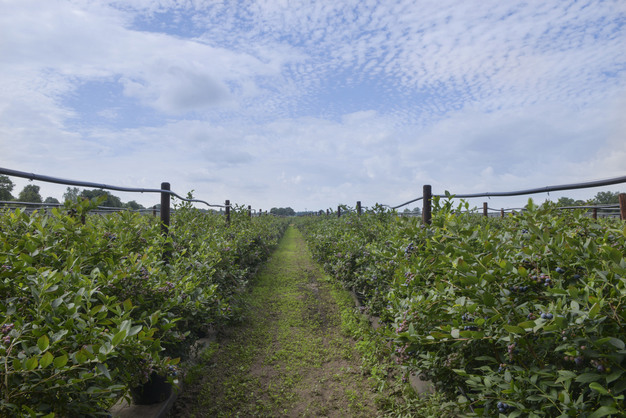
"Our sector is doing everything possible to market blueberries as perfectly as possible. Here, the panels are shifting," Fred adds, "with people increasingly wanting to bring production as close to where the consumption is as possible. That's also necessary to keep CO2 emissions as low as possible. So, I'm proud to have recently signed a contract with a group of Turkish growers in cooperation with the Dutch and Turkish governments to develop cultivation further there."
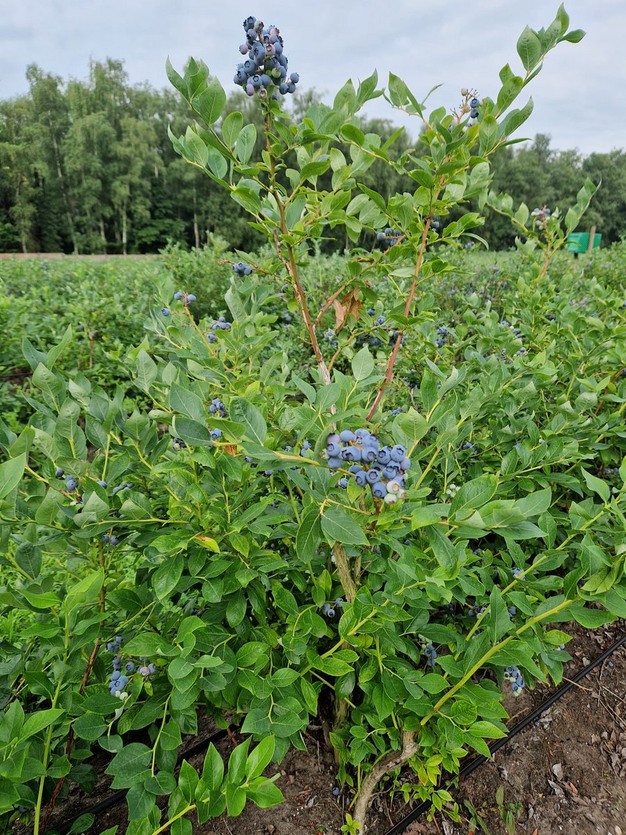
"Within three years, that should result in 200 hectares of blueberries. We hope to start our cultivation this fall in India, too, planting 1,200 hectares in three years. The global market is, thus, shifting, which is a good development. Yet, you also have to allow the sector time for that and, in a fast-growing category like soft fruit, it's an illusion that everything will be perfect right away," Fred concludes soberly.
For more information:
Fred Douven abbGrowers
abbGrowers
Handelstraat 8
5961 PV, Horst
[email protected]
www.abbgrowers.com
